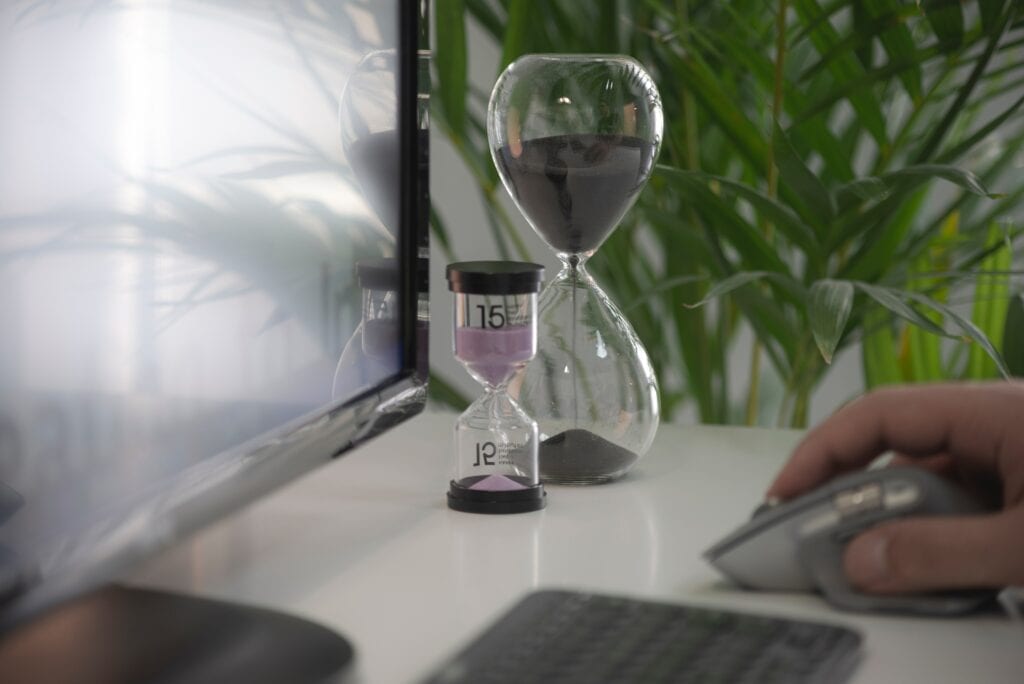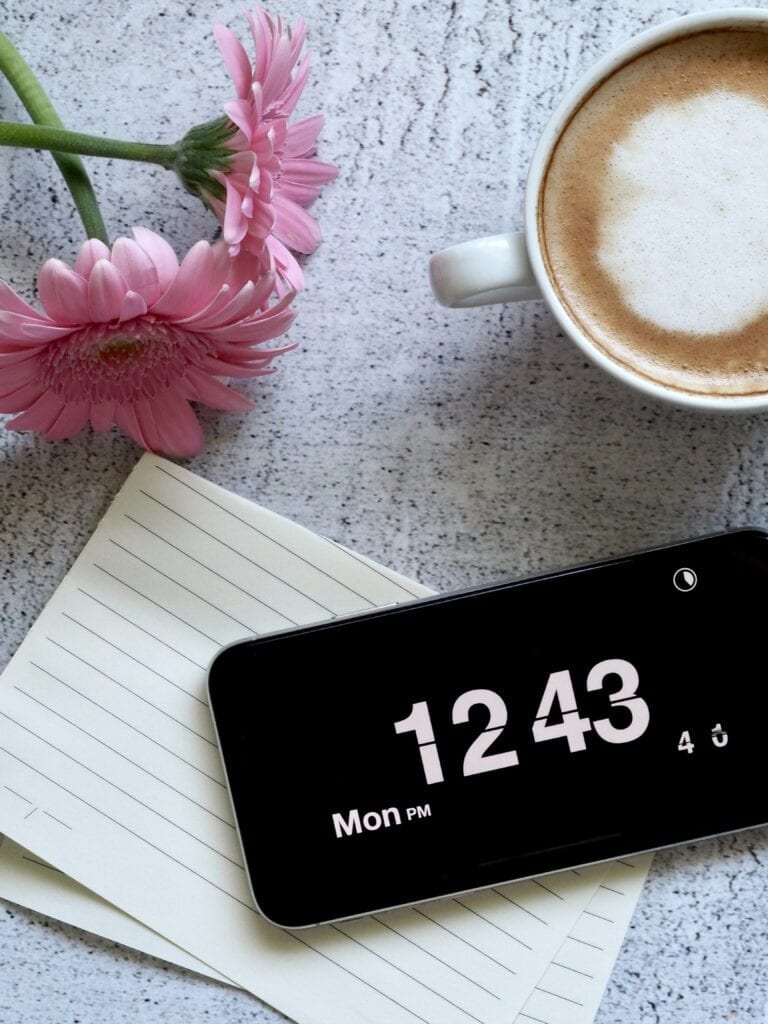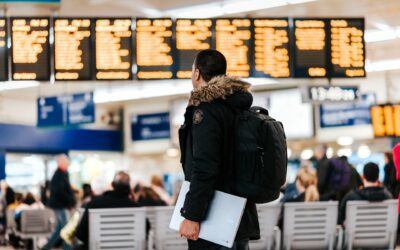The digital nomad lifestyle is often one characterized by freedom. We have the freedom to manage our time in the way that we wish, and we have the freedom to build our lives wherever we wish.
The digital nomad lifestyle is often characterized by throwing off the time and place restrictions associated with most typical jobs until recent years.
There is no need to commute in to work to arrive at a certain hour and stay until the end of the day watching the clock run down even if there is nothing to do.
There is no need to struggle to find descent and affordable housing within reasonable commuter distance of where we want to work or be subject to the high cost of living that often accompanies living in desirable areas.
There is no need to limit your exploration of the world to the few weeks of holidays that your company offers you each year.
But, while there is little doubt that the digital nomad lifestyle offers some freedoms that are virtually impossible in traditional 9-5, location-based jobs, it is a myth that, for digital nomads, the lines between work and leisure disappear.
A recent ethnographic study of digital nomads by Dave Cook has found that digital nomads tend to face greater challenges than traditional workers when it comes to drawing healthy lines between “working” and “living”.
He finds that, while digital nomads throw off the imposed discipline required by traditional jobs, successful digital nomads replace this with an incredible amount of self-discipline that enables them to live that enviable “work hard, play hard” lifestyle that is associated with digital nomads, without burning out.
Let’s take a closer look at the findings of Cook’s study and the lessons it holds about optimizing and making the most of the digital nomad lifestyle.
What Is A Digital Nomad?

Cook describes digital nomads as people who attempt to gain freedom by travelling while working, clearly distinguishing between them from business travellers who travel for work and tourists.
But he points out that this entire ethos raises questions around the boundaries between the concepts of work, leisure, and freedom.
He notes that this is exacerbated by the fact that most digital nomads also tend to find themselves in the “entrepreneurial” niche. By this he does not mean that they are creating cutting edge businesses, many digital nomads work for clients or companies in a way that is very similar to other more sedentary workers. But, through interviews, Cook finds that digital nomads are more likely to have an entrepreneurial attitude.
I work for myself. I am responsible for my own successes and failures. If I work hard, I earn more, and if I work less, I earn less. I am also responsible for creating a safety net for myself if things start to go wrong.
For this reason, digital nomads tend to think that they need to be “switched on” to work opportunities all the time and have a tendency to prioritize work over leisure.
But, at the same time, there is an expectation that digital nomads will also make the most of their travels, seeing exotic sights and meeting new people.
It is this combination that leads to a “work hard, play hard” lifestyle, which often leads to burnout. Because, when these are your two priorities, self-care is generally what gets sacrificed.
You don’t eat well, you don’t sleep well, and you don’t take the necessary time needed to recharge your batteries. These are all issues that we have discussed in various posts.
So, to make a success of a digital nomad lifestyle, and not fall into this trap, digital nomads have to develop a variety of disciplines. These disciplines may often seem at odds with the freedoms that we associate with the digital nomad lifestyle, and more appropriate for traditional jobs. But they make the difference between digital nomads that thrive in the long-term, and those that burn out.
Let’s take a look at the disciplines that digital nomads needs to master in order to separate work and leisure.
Discipline: Mobile Adaptability

Cook finds that while travel is core to the identity of the digital nomad, the disruption of travel is also one of the biggest challenges that digital nomads face.
His interviews suggest that it takes digital nomads a minimum of three days to find healthy routines again when relocating to a new place.
The most successful digital nomads have practices in place that help them to kickstart their preferred routine when they arrive at a new location, and have rituals that help them delineate their new space and time.
Discipline: Device Choice

Cook finds that the vast majority of digital nomads rely on two devices, a laptop and a smartphone.
But many digital nomads choose to differentiate between these devices, using their laptop for work, and their smartphone for leisure.
Most digital nomads say that they do this because their smartphone has too many social apps on it which can be a major distraction from their work.
This choice of device also helps delineate work and leisure space, much like remote workers do with a home office. But, while both devices might be sitting on the same desk, their different defined uses leave you feeling differently when you use them.
Discipline: Co-Working

While it may not always make the most sense in terms of time for a digital nomad to pack up their laptop and other gear to set themselves up again in a co-working space, many digital nomads choose to make the time sacrifice as they gain clear productivity gains.
Being in a space that is set up for work, with ergonomic chairs and power sockets in the right place, plus being surrounded by others who at least appear to be working, can be essential for getting into the working headspace.
Being able to draw a line under work and walk away also helps digital nomads avoid letting work eat up too much of their leisure time. If your home isn’t doubling as your office, you will be less likely to get sucked into work tasks while off-duty.
This can seem like imposing some of the restrictions of the office that digital nomads are choosing to avoid, by recreating an office that you need to visit. But the difference is that there are not set hours, other than those you choose for yourself.
Discipline: Self-Imposed Deadlines

In the absence of the line management accountability found in traditional workplaces, many digital nomads tend to become very interested in self-imposed deadlines and performance tracking.
While certain jobs may have real deadlines that the digital nomad needs to meet, when these are lacking, digital nomads tend to do better when they choose to impose their own, self-defined deadlines.
When these don’t necessarily make sense, they can often be replaced with performance tracking approaches, with digital nomads choosing to use certain targets to determine when they have “done enough”.
Discipline: Time-Zone Rhythms

When your work schedule is your own, choosing the best working hours in terms of productivity and the other things that you would like to do can be challenging.
This can be made even more challenging if you are working across time zones and need to schedule at least some of your work for unsociable hours to make calls with clients and collaborate with colleagues.
The most successful digital nomads tend to be able to sync their working hours to the local rhythm and limit the impact of working outside their time zone on their preferred schedule.
Discipline: Social Commitment
Cook found that digital nomad couples tend to have an easier time maintaining the lines between work and leisure than singles. This is because their commitment to spend time together and focus on one another makes it easier for them to allocate time as either work or leisure. They can also hold one another accountable.
Singles often have a very difficult time with them, especially if they do not yet know many people in the local area and so perhaps spend many evenings alone.
The most successful digital nomads will often create social commitments, whether they be calls with loved ones, catching up on Netflix, or taking themselves out to explore the local area, to try and bring that rhythm and accountability to their life from day-one of arriving in a new place.
You can read our guide on how to meet new people in a new city here.
Discipline: Time-Management & Process Strategies

Cook also finds that the digital professions of digital nomads, combined with the pressure on them to manage their time and wellbeing, makes digital nomads very likely to be interested in applications and tools that help them better maintain their schedules and processes.
He found that almost all the digital nomads that he interviewed were significant users of applications for time management and task tracking within their work, but also for things such as monitoring habits, evaluating their sleep, meditating, and so forth.
Because these topics are of such great interest to digital nomads, they are something that we address regularly on the site. For example, we recently published a post on the Best Apps for Digital Nomad Self-Care.
The Verdict
Many of us choose the digital nomad lifestyle because we are looking for freedom. We want to be able to control our own lifestyle without the restrictions imposed on us by needing to be in a certain place at a certain time in order to work.
But traditional jobs often provide the structure necessary both to promote productivity, and to clearly delineate between time spent working, and time spent on leisure.
When we remove ourselves from that structure, we must rely on our own self-discipline both to be productive, and to ensure that our self-directed workload does not swallow up the life that we were seeking when choosing to travel.
Dave Cook has recently conducted an ethnographic study looking exactly at the disciplines that digital nomads need in order to make a success of the digital nomad lifestyle without burning out.
Do you think that you have these disciplines?












